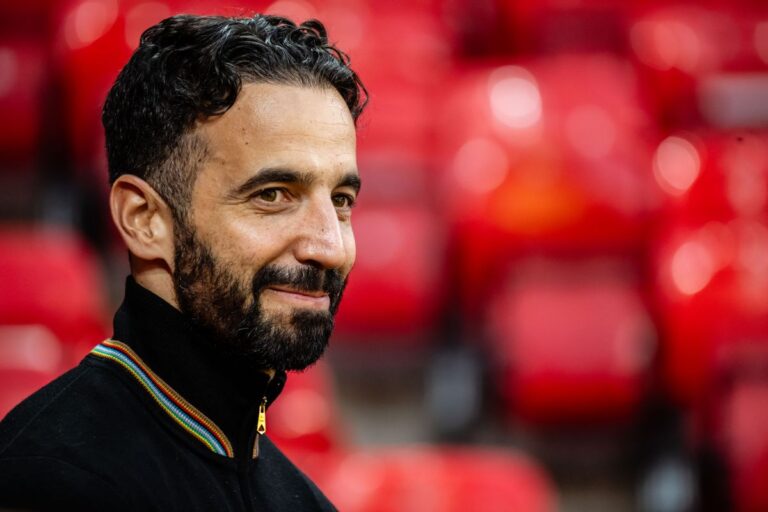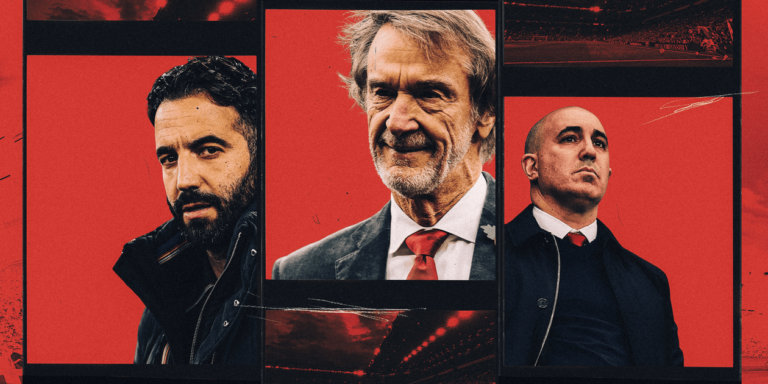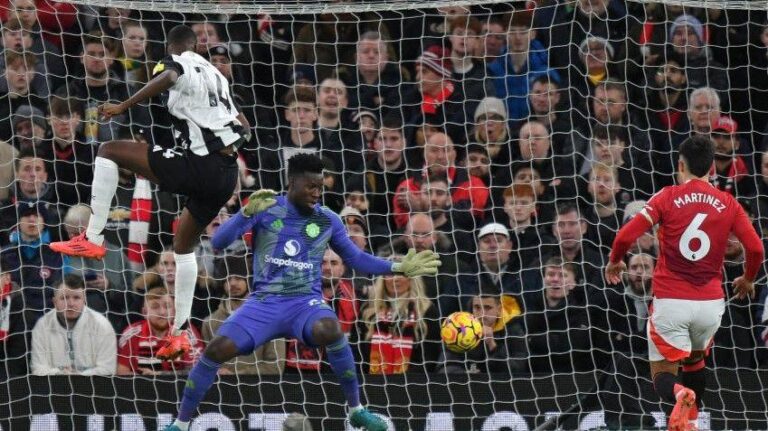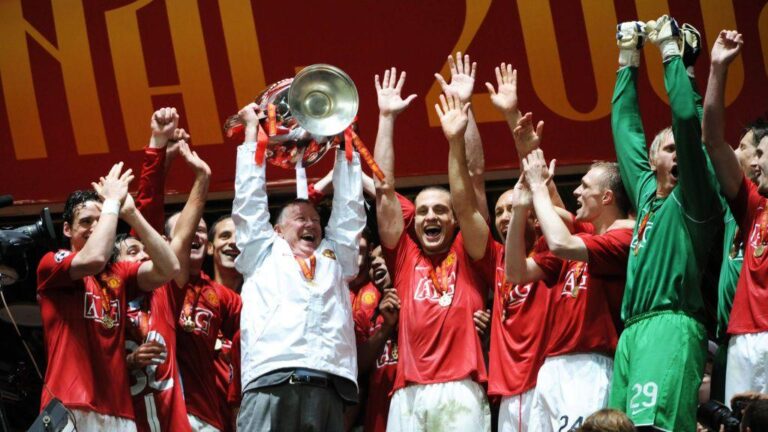
The Construction of Sir Alex Ferguson’s Final Iconic Manchester United Team
This is a tale of two sets of tears.
The first unravels in the glaring spotlight of the global stage – in Moscow’s Luzhniki Stadium during the iconic 2008 UEFA Champions League final.
Millions watch on their screens, filled with anticipation, as a British manager reaches the zenith of his career after enduring a torrential downpour and that fateful slip.
The second scene of melancholy, however, unfolds three years earlier, a mere 3,000 miles away, ensconced behind the locked doors of the Estadio de Benfica in Portugal.
John Terry's fateful miss in the 2008 Champions League final between Chelsea and Manchester United has etched itself into the annals of football history.
Histories recount that the Chelsea stalwart had an opportunity to clinch the cup—but alas, fate had other plans.
Yet, for Rio Ferdinand, the narrative veers in a different direction.
The former Manchester United and England defender posits that the roots of their monumental victory in Moscow can be traced back to a far earlier moment steeped in emotion.
It was, in the dry heat of a Portuguese evening, a young Cristiano Ronaldo who was left in floods by the legendary Sir Alex Ferguson’s infamous hairdryer treatment.
Manchester United were at the genesis of a rebuilding era.
Having basked in the glory of league triumph in 2002-03, the Red Devils found themselves unable to replicate that success over the next three years.
During that time, Arsenal achieved their historic invincible season (2003-04), while Chelsea snatched the title in both 2004-05 and 2005-06.
A frustrated Ferguson, incensed by the cracks in his former monopoly, snapped.
The confrontation that left Ronaldo in tears, according to Ferdinand, set off a chain reaction that eventually led to the triumph in Moscow.
“I remember Cristiano in tears in the changing room, and I was like, right, this manager don't care, man. He don’t care who you are,” Ferdinand recalls in the BBC Sport documentary Sir Alex, set to air on iPlayer on Boxing Day.
“I remember we'd been to Portugal and played a couple of games. Cristiano hadn’t played well because he was young and really trying to impress, trying to show why he had come to Manchester United. Everyone was talking about him, and he was trying too hard. It never came off.”
“I recall we played Benfica away, and the manager tore into Cristiano, saying ‘Who do you think you are? Trying to prove yourself to everybody. Who do you think you are, a superstar?'
“He deserved it. Just look at the player he became.”
“The manager knew that he could be soft and nice to him, but he had to be stern as well. To reach the heights he did, to be the world's best player when he left, he needed moments like that.”
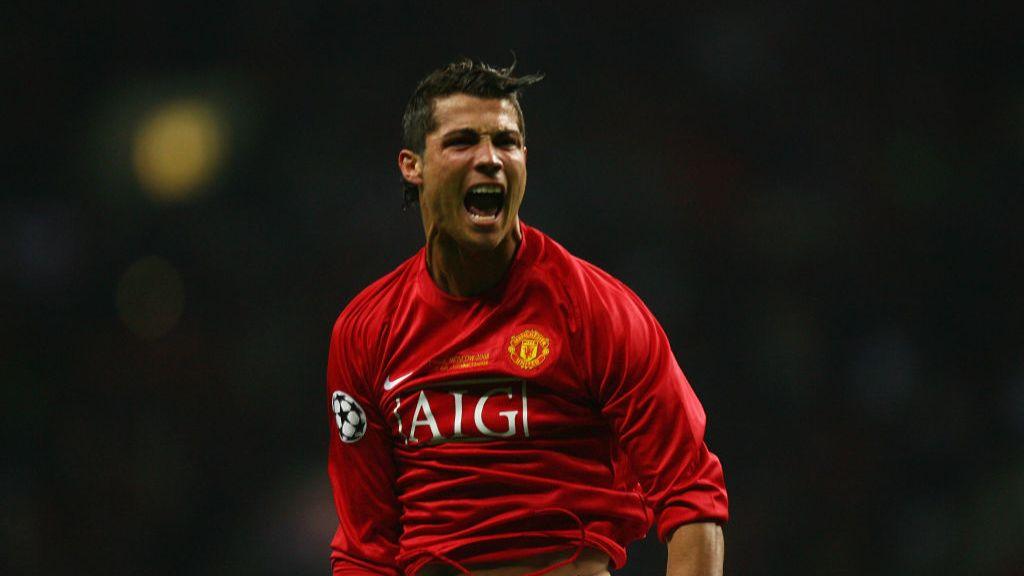
Image source, Getty Images
Ronaldo became one of United's greatest players before going on to become an all-time footballing great with Real Madrid and Portugal.
Sir Alex Ferguson was no ordinary manager; he was a masterful architect of footballing destinies, and his masterpiece was cemented during that momentous 2008 campaign.
The talented squad of 2008, perhaps more than even the revered “Class of 92” which included luminaries like David Beckham, Paul Scholes, and Gary Neville, firmly etched Ferguson’s legacy into the storied annals of Manchester United history with their triumphant second Champions League win.
Notably, this team could arguably have been the pinnacle of Ferguson's illustrious 26-year reign at Old Trafford.
Ferguson’s ability to construct that final great United side—a feat only overshadowed by the squad that gave him a memorable send-off with a 13th Premier League title in 2012-13, spearheaded by Robin van Persie—is a compelling testament to his relentless pursuit of excellence and relentless drive for reinvention, evidenced through the experiences of players like Ferdinand, Ronaldo, and Wayne Rooney.
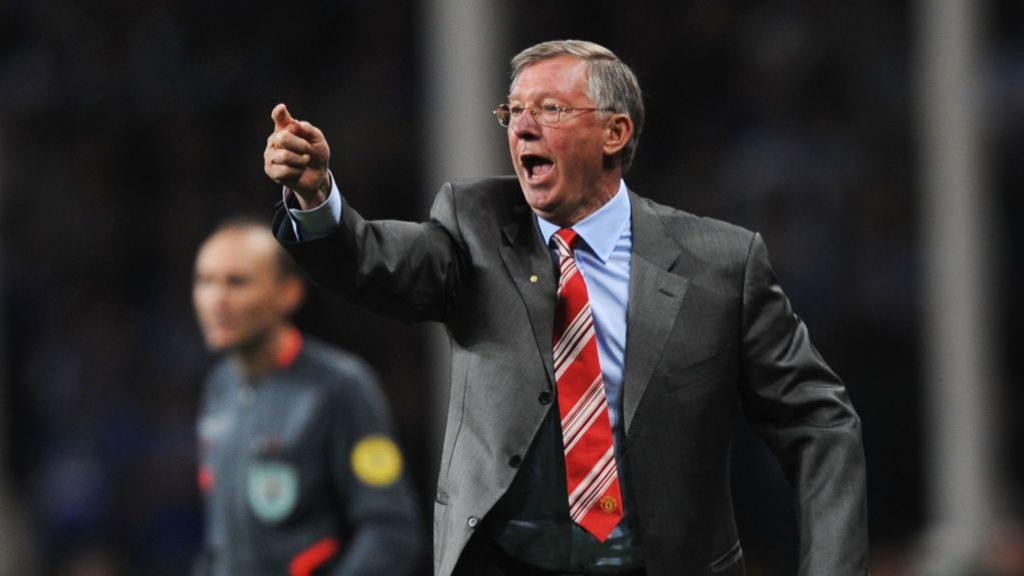
Image source, Getty Images
Ferguson reinvented his United squad time and time again.
Ah, June 2004. In another evocative United dressing room, Ferdinand finds himself captivated by a speech that encapsulates another quintessential characteristic of Ferguson’s leadership.
This time, however, the air is devoid of tears.
Instead of unleashing the hairdryer treatment, Ferguson exudes his trademark bullish demeanor.
Amid swirling rumors of potential exits—including the arrival of the self-proclaimed “Special One,” José Mourinho—Ferguson delivers a clarion call of belief instilling confidence within his squad.
“When Jose Mourinho came in to Chelsea in the summer of 2004, there were whispers that I and various other players might be on the move,” Ferdinand reflects.
“But he assured us, ‘Listen, we're going to build this team, and you're going to be one of the main parts of it.' He said, ‘Just stay with me.' He was probably the only manager at that time in the world I would have listened to like that.”
“He told us, ‘Just trust me. I don't get things wrong in football very often. Stay with me, and we'll get this right.'”
“At that point, I was all in. I believed in him.”
In June of that transformative summer, two figures would soon take center stage in Ferguson's quest for Champions League glory.
The first: a headline-grabbing talent bursting onto the scene following a sensational Euro 2004.
I'm talking about none other than Wayne Rooney, whose transfer was the stuff of tabloid dreams.
The second was the return of Carlos Queiroz as Ferguson's right-hand man, stepping in following a stuttering tenure with Real Madrid.
Mourinho's arrival heralded not just his personal ambitions but a significant internationalisation of the Premier League.
Meanwhile, the influence of Chelsea owner Roman Abramovich was sending shockwaves through the footballing landscape—resulting in a frenzy of transfer fees and wage inflation—and Ferguson's side had to adapt swiftly.
While Rooney was a raw, explosive talent hailing from Croxteth in Liverpool, he did his talking best on the pitch, immediately making his mark upon recovering from injury.
He was a player who had no issue stepping into the limelight, illuminating the pitch with dynamic performances.
Queiroz emerged as an invaluable bridge between Ferguson's hard-nosed work ethic rooted in Glasgow and an increasingly multicultural squad.
“At the time I arrived, the Premier League and Manchester United were not as global as they are now,” recalled Serbian defender Nemanja Vidic, reflecting on Ferguson's foresight.
“Carlos was astute,” echoed ex-England midfielder Michael Carrick. “He took the reins on coaching almost daily, guiding us strategically while effectively balancing the managerial approach of Sir Alex.”
A critical emphasis on speed, especially in attack, was vital as Ferguson began to sketch out the blueprint toward Moscow.
“Wayne and Cristiano had a massive impact, for sure,” Queiroz asserts. “They epitomized the shift toward instilling greater pace to fundamentally alter how our opposition operated. With their energy, they reshaped the atmosphere within the club.”
“Sir Alex and I always thought we would be the first to training. But when Cristiano and Wayne arrived, they were already there before us.”
Ferguson's ingenuity with recruitment was focused on bridging the gap between the Premier League and European football.
“Sir Alex told me, ‘I'm looking for someone who can provide insights into European football, someone who can communicate in various languages,'” Queiroz recounted.
“My language skills were strong, and as English football shifted to a more international approach, we needed unifying strategies to navigate this new terrain.”
“While English football was straightforward—'I attack, you attack'—the European style often required patience, setting traps, and exploiting weaknesses.”
“When Sir Alex and I had these discussions, we maintained a balance between our English roots and the emerging tactical nuances required in Europe.”
“I distinctly recall our initial conversations, and he articulated, ‘Carlos, your mission here is to help me win another Champions League.'”
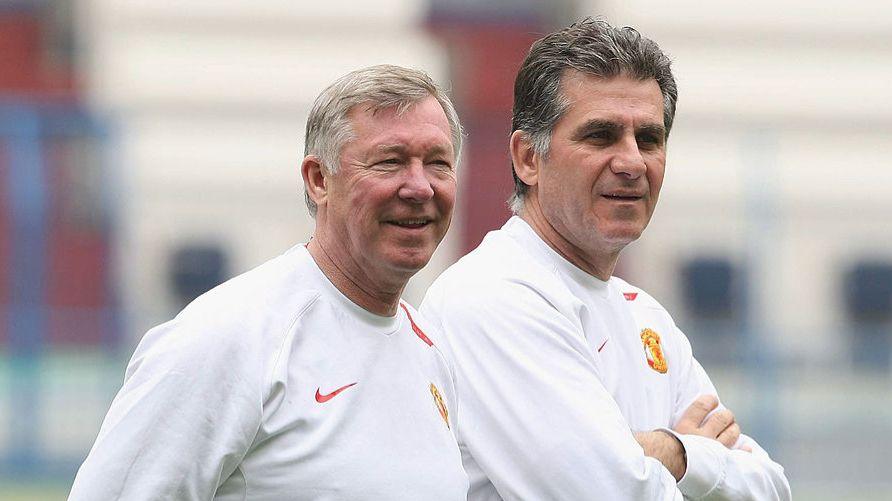
Image source, Getty Images
Ferguson added Queiroz to his coaching team with the aim of once again conquering Europe.
Rooney became the linchpin of Ferguson's relentless drive to secure another Champions League triumph for the storied club.
For him, Ferguson's transformative ability to continually rebuild the spirit and caliber of his squads stood out as one of his greatest attributes.
“What Sir Alex accomplished was remarkable,” Rooney reflects. “He adeptly navigated through different phases with different teams and was able to rebuild a squad, steering them in new directions while achieving success time and again.”
Unlike Ronaldo, who harbored poignant memories of a father figure lost to alcohol, Rooney didn't seek the same paternal guidance from Ferguson—but that doesn’t diminish the resonance of the manager's human touch.
“I didn't particularly need that father figure; I had my family close by, as Liverpool is only 30 minutes from Manchester,” says Rooney. “But I witnessed how others, like Cristiano, needed that mentorship more.”
By the 2006-07 season, the rebuilding process began to bear fruit: Ferdinand and Vidic stood resolute at the heart of defense, while Carrick orchestrated midfield, allowing titans like Rooney, Ronaldo, and Tevez to wreak havoc in attack.
“We reached the Champions League semi-finals against Milan and edged them 3-2 in the first leg,” Rooney recalls. “They possessed an exceptional squad—Kaka, Shevchenko, Pirlo, Seedorf, Maldini, Cafu, you name it.”
“Although we lost 3-0 in the return leg, that duel ignited a belief within us. ‘We were ready to compete,' I think we all realized.”
United reigned supreme in the Premier League by that summer, clinching their first title in four seasons and setting them on a path to greatness that would lead them to the Russian capital.
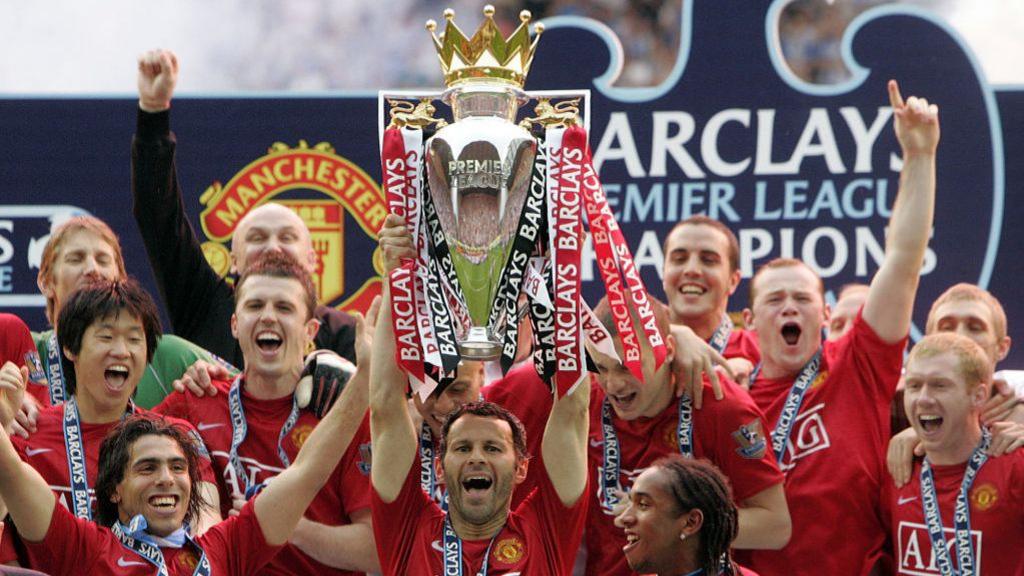
Image source, Getty Images
United's second Champions League-winning team won via a penalty shootout.
Hard work and humility—hallmarks of Ferguson's philosophy, illuminating the conceptual pathway of why a young Ronaldo's flashy style irked the maestro years before in Lisbon.
By the time Ferguson and his squad touched down in Moscow, he had artfully sculpted arguably the most accomplished XI throughout his monumental 26-year tenure.
Just over 12 hours after Ferguson’s unforgettable team talk, his side delivered what would be the defining victory of his legendary career.
Ronaldo netted the opening goal that fateful night, setting the stage for a scintillating finale.
Though he would miss his penalty during the shootout, it was Chelsea's John Terry who ultimately succumbed to despair, carrying the burden of defeat.
A poignant contrast—a tale of two sets of tears.
A narrative of the second Champions League title—a glorious achievement that would become the cornerstone of Sir Alex Ferguson's legacy at Manchester United.
And indeed, an indelible mark on the beautiful game.



